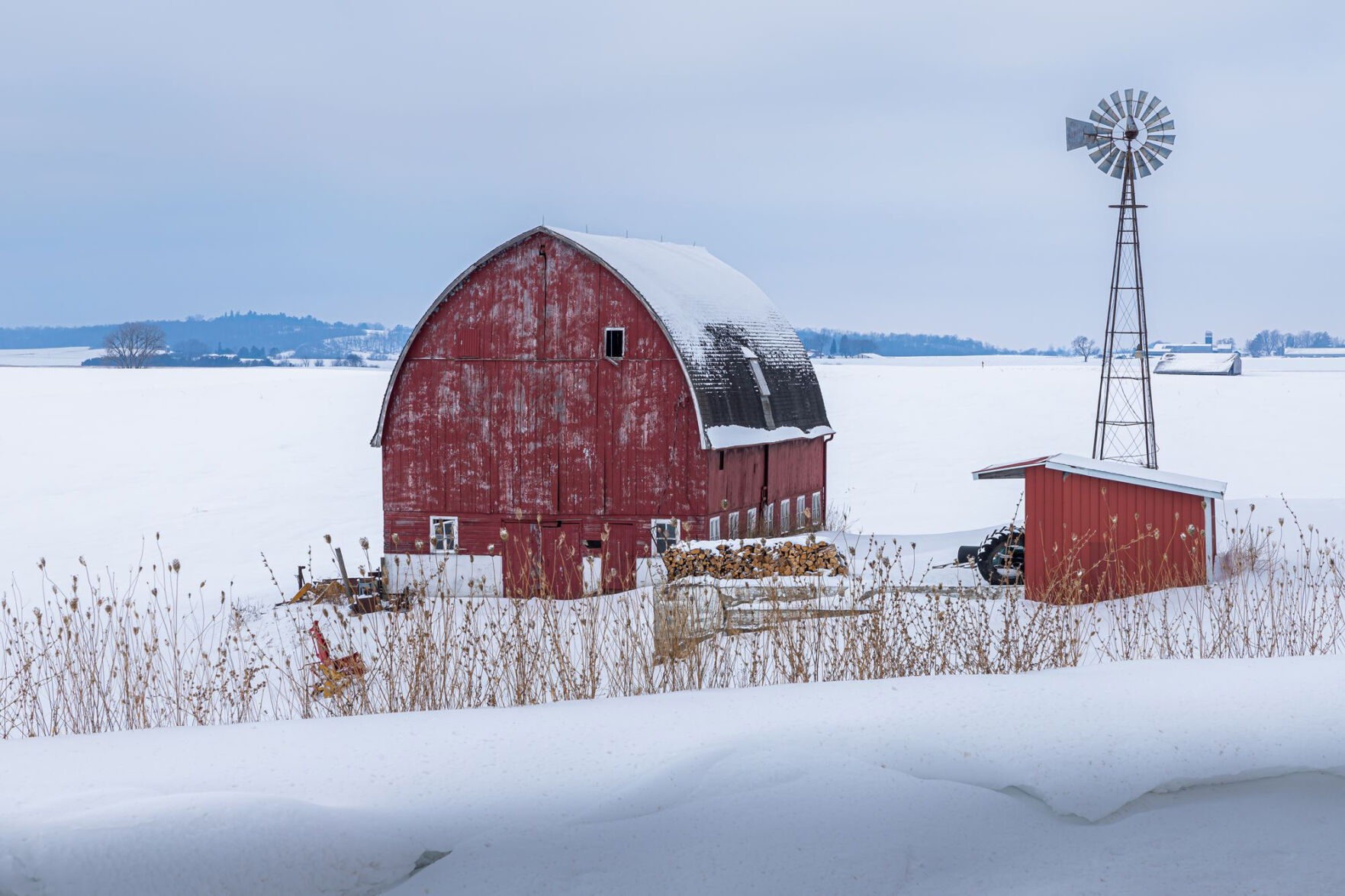Editor’s note: Kelli Loos is filling in for Trent, her husband, for this week’s column.
As I write this, I am looking out the window at a snow-covered landscape, glancing at my phone that tells me the current temperature is minus 13 degrees Fahrenheit and I catch myself thinking “Wow, it looks pretty nice out there. There’s no wind.”
As strange as that may sound to some, Nebraskans are in a near constant battle with the wind. While we do use it to pump water into cattle tanks, wind is typically more adversarial than helpful.
The better part of the past two weeks has been a real battle for livestock producers in many areas across the county dealing with the most recent polar vortex. I contend that any one of the miserable weather elements—wind, cold or snow and freezing rain—are somewhat tolerable on their own but in combination, they are just treacherous. Yes, we did have days that included bone-chilling below zero temps combined with blinding windswept snow. And it was that time period that just happened to coincide with Trent’s winter livestock show trips, so I was flying solo in the storm.
As livestock producers, we just do everything we can to provide comfort and nourishment for our animals from adequate feed, windbreaks and perhaps even dry bedding to lie on. Water is always another story when it’s this cold, but water is no less essential to their survival in the cold than it is in the heat. With that in mind, we pack a lot of buckets of hot water out to thaw frozen hydrants and waterers.
Each day we get up, fuel up ourselves, and head out to take on the day. Before we step outside there is a lot of layering and bundling. There are true benefits to all the many layers we add, from snuggly base layers to super thick hoodies, wool socks, insulated coveralls and face coverings of all kinds. One key, of course, is not forgetting a bathroom stop before you bundle up because there’s nothing worse than unbundling just for that.
While layers keep us warm, I also find them frustrating. The lack of peripheral vision when your head can barely turn is one of my biggest irritations. I like to see who or what is coming up behind me when I’m packing a bucket across the lot. I also really dislike the fact that you can’t exhale without getting your scarf all wet and the next thing you know that thing is frozen as stiff as the road apples you’re tripping over in the horse lot. They are not comfortable or necessarily warming at that point.
When the sun finally pops out, it will automatically seem 20 degrees warmer but then if you have sensitive eyes like mine, you’ll be looking for some sunglasses to minimize the glare of the snow. That’s another problem, glasses that are continually fogging over.
During this time period, I’ve discovered a few things that I am grateful for including feed trucks with good floor heaters, crock pots full of hot food, neighbors that will help you out when your tractor clutch goes out and most of all, electricity and everyone responsible for making sure the power stays on.
As we battle to get through each day, we just keep reminding ourselves that we’ve been charged with caring for God’s creatures, and we need to do the best job we can despite the joys that Mother Nature throws at us. We just look to get through one round of chores, then one day and then another until we start to look forward a couple days to the predicted weather of a few degrees warmer. Won’t that be great?
We’ll bundle up, push through and keep doing our best—not without a feeling of complete exhaustion as you finally plop in the chair at night, maybe even snuggle under a blanket with a hot bowl of soup. Yep, we made it through another bad day, eventually another winter and the hope of spring will be upon us before we know it. Cheers for the battle and the joy of bundling.
Editor’s note: The views expressed here are the author’s own and do not represent the views of High Plains Journal. Trent Loos is a sixth generation United States farmer, host of the daily radio show, Loos Tales, and founder of Faces of Agriculture, a non-profit organization putting the human element back into the production of food. Get more information at www.LoosTales.com, or email Trent at [email protected].
